How does Mood Affect Poker Success?
As time went by and poker become the national pastime, some folks started taking a closer look at mood and personal feelings and whether or not they were having a direct effect on one's game and by extension one's bankroll. I began noticing not so much expert writings on mood and affect but comments; sometimes offhand, sometimes more explicit.
Usually they were from major players, professionals who were quoted saying things like, "Well, I've been working harder on being more confident about my game when I sit down." Or, "I sensed I might do well in this tournament. I've been playing pretty good lately and my confidence was high." Or, "The more confident I am, the better I seem to do."
I found these remarks intriguing but puzzling. The gambler in me was skeptical. The game has a significant luck factor and, no matter how skilled you are or how good you feel about yourself and your game, you can still get your highly confident butt handed to you on an unlikely river. The psychologist in me had an even stronger reaction. I doubted that being confident (or not) could have a real impact on how well one played poker. It's a game of decisions, a game of analysis of circumstances based on partial information. How can feelings of self-reliance make any difference to how you think these things through and to what decisions you make?
The Confidence Game in Poker
As I continued to play and learn about the game I began to get a growing sense that this confidence thing might be real. These pros didn't seem to be just blowing steam. They were talking in serious ways about the importance of one's emotional and motivational state. It still didn't make sense, though. I could imagine how confidence could work in a game that depended on physical skills.
It seems pretty obvious that if you're feeling down and doubting your abilities, you're going to have trouble holding off a rushing lineman or driving hard to the basket or getting a tight spin on your curveball. But making a tough call? Making a big lay-down? Running a bluff? It didn't feel quite right.
I don't know if you've thought about this stuff but these are the circumstances that rankle scientists. We see patterns in the data - some of them seem to make sense; some don't. Some of the time the evidence seems very strong but we find ourselves feeling skeptical; some of the time the evidence is weak but we are enthusiastic supporters. As a scientist, I can tell you that often how we feel in these situations depends on whether or not we have an "explanatory mechanism," some theoretical process that allows us to understand why something is real.
Here's an example that'll make my point. We've long had good evidence that physical exercise helps cognitive functions as we age. But, no matter how convincing the data, many scientists were skeptical because there wasn't any obvious explanation. However, we now know that exercise boosts the efficiency of glucose metabolism, especially in brain areas critical for memory. Glucose powers the brain, and when we metabolize it effectively, our brains function more efficiently. Are there more mechanisms that link a sense of confidence and success in poker? Ones with "explanatory" power?
Aggression: Still Rarely Wrong in Poker
Mike Caro is known for many insights into poker and the one that rings true here is this nugget: "Aggression is rarely wrong in poker, and the times when it is wrong it isn't wrong by much." High levels of confidence increase aggressiveness, which is why being confident works in physical sports like football or boxing. An uptick in the level of aggressive play is one likely reason why confidence empowers players.
Think Long, Think Wrong is Poker Cliché for Reason
When you're feeling self-assured you tend to trust your decisions. You're probably not making better decisions than when you're feeling a bit down, but you don't doubt yourself, and you're less likely to engage in destructive "doublethink." You analyze a situation and you act, with confidence. When you're in one of those periods of self-doubt you don't really trust yourself. You feel muddled and confused and start questioning your decisions. "Think long, think wrong" is an old poker cliché and when it's right, it's right for this very reason.
Chicken or Egg?
I think these two "explanatory mechanisms" makes a certain amount of sense, but I'm still skeptical. There's another wrinkle here. When you're running good, your confidence level rises. You seem to be playing better, getting better results. Is this because you're confident and making good decisions?
Maybe it's merely a random swing where you're getting more than your share of cards or your opponents aren't sucking out. Or you've had the nuts a few times while your opponents were holding the second nuts instead of a busted hand. And, well, maybe this is making you feel really, really confident? You know, the old "chicken or the egg" cliché ... By the way, there are two take-home messages here:
- Practice - Work on developing confidence in your game
- Exercise - Poker is a physically passive game and few players exercise enough.
Testosterone and Aggressive Play in Poker
Back to Caro's "Aggression is rarely wrong in poker. And when it is, it isn't wrong by much." This line goes right to the core of the game and, not surprisingly, has received a lot of analysis. In terms of standard poker strategy the gloss is straightforward. Aggression works because it can win "immediate" money two ways because you:
- Force an opponent to fold a better hand or one that might improve to beat you;
- Win more when you're best and get called.
Checking and calling only win when you're best and don't affect pot size. But there are other reasons why Caro is right, ones that involve "future" money, money that will be won in hands to be played later down the road.
Poker is Metagame
The elements that underlie this implied revenue are primarily psychological and are best seen not as specific strategic moves in particular hands, but as factors that are part of what Dan Harrington calls the "metagame" - those elements that characterize the game as played over extended periods of time and among a host of different players. The concept of a metagame is important.
The role that aggression plays in the metagame has a lot to do with the hormone testosterone, its impact on our physical and mental selves, the role it plays in self-confidence and the importance of experience. With your indulgence, I need to shift into professor mode for a short lecture. Testosterone is an anabolic steroid derived, as are other steroids, from cholesterol (and you thought that stuff just clogged your arteries). It is produced primarily in the testes in men and, in much smaller quantities, by women in the ovaries.
It has a host of effects on the body including increasing muscle mass, enlarging body parts, stimulating sexual arousal and increasing bone density. It also affects cognitive functions, contributes to mental alertness and, under certain conditions, increases aggression. Many have assumed that there is a direct relationship between testosterone levels and aggressive play in poker. There may be; in fact, there probably is, although I don't know of any controlled scientific studies. But if a relationship does exist, it is likely complex because we know that hormone levels interact with a host of other factors, one being learning. Here's a classic study done several years ago - and, yes, it holds a message for poker players.
Science Comes to the Rescue
Scientists selected a young monkey, one low on the dominance hierarchy and with relatively low testosterone levels; let's call him Max. This poor sod was routinely beaten on by his more aggressive troop mates. But science came to the rescue. The researchers rigged his next encounter by drugging the monkey just above him in the troop's pecking order. Max won his first fight and replaced the other monkey in the chain of command.
The research team, however, was just getting started. Through a succession of fixed fights (the way some boxers get their shot at a title) they engineered a climb up the monkey version of the corporate ladder. Max prospered. As he climbed, his testosterone levels went up. He gained weight and strength and behaviorally he seemed to show more swagger and confidence. Monkeys who once intimidated him were now cowed. The message was clear. Testosterone levels are not fixed by biology. They are malleable and can be shifted about by experience.
Self-Confidence Breeds Aggressive Action in Poker
So, back to poker. Everyone knows you win when you play better, but it's also true that you play better when you're winning. You take down a couple of pots; hormone levels take a tick upward. You start building a stack; your confidence rises. You felt a couple of opponents; your modal level of aggression moves upward. You feel strong, assured, and importantly, your opponents sense it too.
If you come to the table with a good sense of self, a feeling of self-affirmation and a (realistic) belief in your abilities, you have a leg up on your opponents. Self-confidence breeds aggressive action which wins that "immediate" money but, more importantly, like Max's case, it changes critical features of the metagame. Your sense of confidence is reinforced, your self-image is promoted and these emotions feed into your alpha male stance.
On the flip side of the coin, if you let a bunch of losses get to you, you're in danger of sliding down the dominance hierarchy at the table. The Maxes at the table, who are moving upward, will see what a wuss you are and beat on you mercilessly.
Testosterone Boosters for Poker Players
Indeed, a series of bad beats is, from a psychological perspective, a lot like being on the wrong end of a bunch of rigged fights. Of course, this link with testosterone hasn't gone unnoticed. Several companies are touting products for poker players that they claim are testosterone boosters.
Gamma Labs, manufacturer of a compound derived from rice bran and pomegranate (called Gamma-O) recently signed an agreement with Harrah's to be a sponsor of the WSOP. Because this compound is listed as a "nutritional supplement" it falls outside the regulatory umbrella of the FDA. As such, it has not been subjected to rigorous, scientific tests. Paint this old professor skeptical. Caveat emptor. Is there a downside? A small one. Too high a level of testosterone is associated with inappropriate aggression.
This isn't terrible since, as Caro noted, when aggressiveness is wrong it's not all that wrong. However, more aggressive players have larger swings and higher variance. No problem with this if your bankroll and psyche can handle it. Finally, a question to ponder: Does the link between testosterone and aggression have anything to do with the gender issue? I suspect it does, but the issue is complex and I'll have a column on it in the near future.
Author Bio:
Arthur Reber has been a poker player and serious handicapper of thoroughbred horses for four decades. He is the author of The New Gambler's Bible and co-author of Gambling for Dummies. Formerly a regular columnist for Poker Pro Magazine and Fun 'N' Games magazine, he has also contributed to Card Player (with Lou Krieger), Poker Digest, Casino Player, Strictly Slots and Titan Poker. He outlined a new framework for evaluating the ethical and moral issues that emerge in gambling for an invited address to the International Conference of Gaming and Risk Taking.
Until recently he was the Broeklundian Professor of Psychology at The Graduate Center, City University of New York. Among his various visiting professorships was a Fulbright fellowship at the University of Innsbruck, Austria. Now semi-retired, Reber is a visiting scholar at the University of British Columbia in Vancouver, Canada.
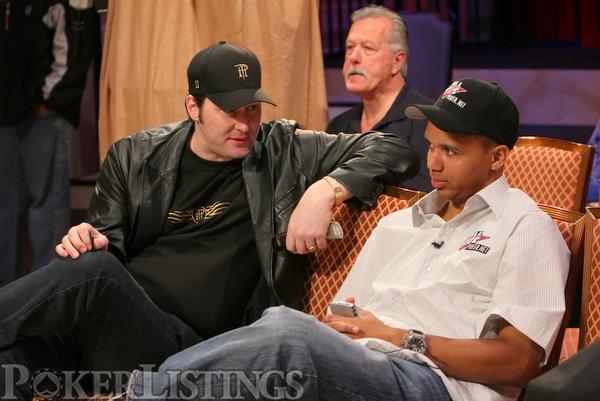







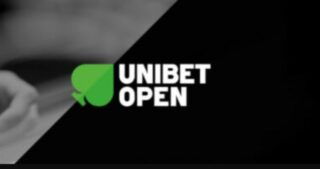
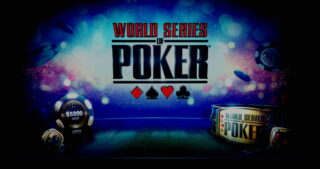
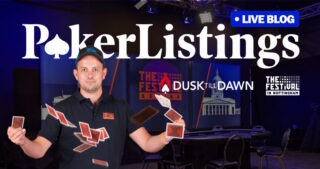
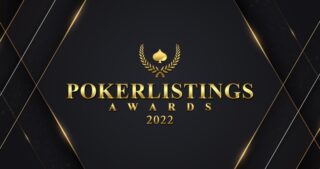

Confidence definitely helps. Sometimes I start a low-stakes tournament and after quickly checking the opponents I think “This is gonna be easy money”. That confidence helps me to buy more pots with marginal hands. One has to be careful not to get too complacent or arrogant, though. If you make a naked bluff because you feel invincible and you get called by a fish that beats you with a pair of ducks or something, it’s really hard to find your confidence again amongst all the steam.
Confidence commingled with playing well tends to put your opponents on the defensive which means they are playing your game and not their own. This equates to poker success and profitability for you.